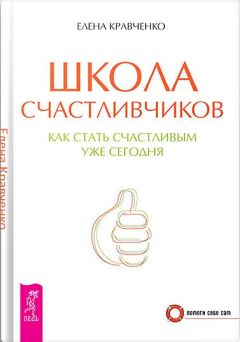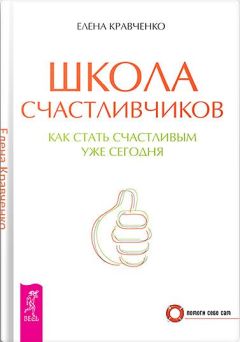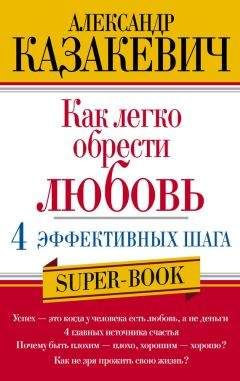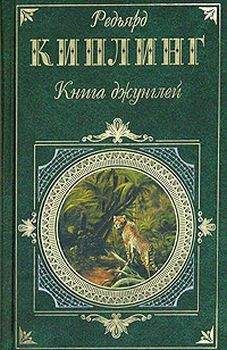Редьярд Киплинг - Английский с Редьярдом Киплингом. Рикки-Тикки-Тави / Rudyard Kipling. Rikki-Tikki-Tavi
He did more than wriggle (он не только извивался: «он делал больше, чем извивался»). One night he slid down from the post and slipped in between the elephants and threw up the loose end of a rope (однажды ночью он соскользнул вниз со столба, прошмыгнул между слонами и бросил свободный конец веревки; to slide – скользить, двигаться плавно; to slip – скользить, плавно передвигаться; проскользнуть, прошмыгнуть; to throw – бросать, кидать), which had dropped (который упал; to drop – капать; падать), to a driver who was trying to get a purchase on the leg of a kicking young calf (загонщику, который пытался заполучить ногу пинающегося слоненка; purchase – зд.: точка опоры; calf – теленок; детеныш /оленя, слона, кита/) (calves always give more trouble than full-grown animals (слонята всегда доставляют больше хлопот, чем взрослые животные)). Kala Nag saw him (Кала Наг увидел его), caught him in his trunk (поймал его хоботом; to catch), and handed him up to Big Toomai (и передал Большому Тумаи; to hand – дотрагиваться, брать рукой; передавать, вручать), who slapped him then and there, and put him back on the post (который тут же отшлепал /сына/ и посадил обратно на столб; to slap – хлопать, шлепать; then and there – в этот момент, тотчас же, на месте, тут же).
He did more than wriggle. One night he slid down from the post and slipped in between the elephants and threw up the loose end of a rope, which had dropped, to a driver who was trying to get a purchase on the leg of a kicking young calf (calves always give more trouble than full-grown animals). Kala Nag saw him, caught him in his trunk, and handed him up to Big Toomai, who slapped him then and there, and put him back on the post.
Next morning he gave him a scolding and said (на следующее утро отец отругал его и сказал; to scold – бранить/ся/, ругать/ся/), “Are not good brick elephant lines (разве хороших кирпичных слоновьих конюшен) and a little tent carrying enough (и переноски небольшой палатки недостаточно /для тебя/), that thou must needs go elephant catching on thy own account, little worthless (что тебе еще нужно ловить слонов на свой страх и риск, маленькое ничтожество; to need – нуждаться; account – счет; выгода, польза; on smb’s own account – в своих собственных интересах; на свой страх и риск; worth – стоящий; worthless – ничего не стоящий; ничтожный)? Now those foolish hunters (теперь эти глупые охотники), whose pay is less than my pay (чье жалованье меньше моего; pay – оплата, выплата; жалованье, заработная плата), have spoken to Petersen Sahib of the matter (сказали о деле = случившемся Петерсену Сахибу[9]).” Little Toomai was frightened (Маленький Тумаи испугался). He did not know much of white men (он не знал много = знал немного о белых людях), but Petersen Sahib was the greatest white man in the world to him (но Петерсен Сахиб был величайшим из них для него). He was the head of all the Keddah operations (он был во главе всех действий кеддаха) – the man who caught all the elephants for the Government of India (человек, который поймал всех слонов для Правительства Индии), and who knew more about the ways of elephants than any living man (и который знал больше о повадках слонов, чем любой живущий человек = из ныне живущих; way – путь, дорога; образ /жизни/; to live – жить).
“What (что) – what will happen (что случится /теперь/; to happen – случаться, происходить)?” said Little Toomai.
Next morning he gave him a scolding and said, “Are not good brick elephant lines and a little tent carrying enough, that thou must needs go elephant catching on thy own account, little worthless? Now those foolish hunters, whose pay is less than my pay, have spoken to Petersen Sahib of the matter.” Little Toomai was frightened. He did not know much of white men, but Petersen Sahib was the greatest white man in the world to him. He was the head of all the Keddah operations – the man who caught all the elephants for the Government of India, and who knew more about the ways of elephants than any living man.
“What – what will happen?” said Little Toomai.
“Happen (случится)! The worst that can happen (самое худшее из того, что может случиться). Petersen Sahib is a madman (Петерсен Сахиб – сумасшедший). Else why should he go hunting these wild devils (еще почему = а иначе разве он стал бы охотиться на этих диких дьяволов)? He may even require thee to be an elephant catcher (он даже может потребовать, чтобы ты стал охотником на слонов: «ловцом слонов»; to require – приказывать, требовать), to sleep anywhere in these fever-filled jungles (спал где-нибудь в полных лихорадки = кишащих лихорадкой джунглях; to fill – наполнять), and at last to be trampled to death in the Keddah (и, наконец, был бы растоптан насмерть в кеддахе; to trample – топтать, растаптывать). It is well that this nonsense ends safely (хорошо, если эта глупость завершится благополучно; to end – кончать/ся/, завершать/ся/; end – конец). Next week the catching is over (на будущей неделе ловля закончится; to be over – заканчиваться), and we of the plains are sent back to our stations (и нас, /жителей/ долин, отошлют обратно в наши места; to send – посылать, отправлять). Then we will march on smooth roads (тогда мы будем шагать по ровным дорогам; to march – маршировать, идти строем; идти, шагать), and forget all this hunting (и забудем обо всей этой охоте). But, son (но, сын), I am angry that thou shouldst meddle in the business that belongs to these dirty Assamese jungle folk (я сердит = не доволен, что ты вмешиваешься в дело, которое принадлежит этому грязному Ассамскому народу джунглей; to meddle – заниматься; вмешиваться; folk – люди, народ).
“Happen! The worst that can happen. Petersen Sahib is a madman. Else why should he go hunting these wild devils? He may even require thee to be an elephant catcher, to sleep anywhere in these fever-filled jungles, and at last to be trampled to death in the Keddah. It is well that this nonsense ends safely. Next week the catching is over, and we of the plains are sent back to our stations. Then we will march on smooth roads, and forget all this hunting. But, son, I am angry that thou shouldst meddle in the business that belongs to these dirty Assamese jungle folk.
Kala Nag will obey none but me (Кала Наг не подчинится никому, кроме меня; to obey – подчиняться, повиноваться), so I must go with him into the Keddah (поэтому я должен вместе с ним входить в кеддах), but he is only a fighting elephant (но он только боевой слон), and he does not help to rope them (и не помогает связывать их веревкой; to rope – привязывать канатом; связывать веревкой). So I sit at my ease, as befits a mahout (поэтому я сижу свободно, как и подобает магуту; ease – облегчение, покой; беззаботность, свобода; at one’s ease – свободно, непринужденно; to befit – подобать, соответствовать), – not a mere hunter (не простому охотнику), – a mahout, I say (магуту, я говорю), and a man who gets a pension at the end of his service (и человеку, который получит пособие по окончании службы; pension – пенсия; пособие). Is the family of Toomai of the Elephants to be trodden underfoot in the dirt of a Keddah (должна ли семья Слонового Тумаи быть втоптана ногами в грязь кеддаха; to tread – ступать, шагать; утаптывать, утрамбовывать; underfoot – под ногами)? Bad one (дрянной)! Wicked one (злой)! Worthless son (негодный сын)! Go and wash Kala Nag and attend to his ears (пойди, вымой Кала Нага и позаботься об его ушах; to attend – уделять внимание; заботиться, следить), and see that there are no thorns in his feet (и посмотри, чтобы в его ногах не было колючек; foot – нога; feet – ноги). Or else Petersen Sahib will surely catch thee and make thee a wild hunter (а то Петерсен Сахиб обязательно поймает тебя и сделает диким охотником; sure – уверенный, убежденный; surely – обязательно, несомненно) – a follower of elephant’s foot tracks (слугой следов слоновых ног; follower – последователь; слуга, служитель), a jungle bear (медведем джунглей). Bah (фу)! Shame (позор)! Go (уходи)!”
Kala Nag will obey none but me, so I must go with him into the Keddah, but he is only a fighting elephant, and he does not help to rope them. So I sit at my ease, as befits a mahout, – not a mere hunter, – a mahout, I say, and a man who gets a pension at the end of his service. Is the family of Toomai of the Elephants to be trodden underfoot in the dirt of a Keddah? Bad one! Wicked one! Worthless son! Go and wash Kala Nag and attend to his ears, and see that there are no thorns in his feet. Or else Petersen Sahib will surely catch thee and make thee a wild hunter – a follower of elephant’s foot tracks, a jungle bear. Bah! Shame! Go!”
Little Toomai went off without saying a word (Маленький Тумаи ушел, не сказав ни слова; without – без), but he told Kala Nag all his grievances while he was examining his feet (но он рассказал Кала Нагу обо всех своих обидах, пока осматривал его ноги; to examine – рассматривать, осматривать). “No matter (не беда; matter – вещество; вопрос, дело; no matter – безразлично, неважно),” said Little Toomai, turning up the fringe of Kala Nag’s huge right ear (загибая край огромного правого уха Кала Нага; to turn up – поднимать вверх, загибать; fringe – бахрома; край). “They have said my name to Petersen Sahib (они сказали мое имя Петерсену Сахибу), and perhaps (и, может быть) – and perhaps (и, может быть) – and perhaps (и, может быть) – who knows (кто знает)? Hai (хай)! That is a big thorn that I have pulled out (вот какую большую колючку я вытащил; to pull out – вытаскивать)!”
The next few days were spent in getting the elephants together (несколько следующих дней были проведены в сборе слонов вместе = в том, что слонов собирали вместе), in walking the newly caught wild elephants up and down between a couple of tame ones (водя вновь пойманных диких слонов взад и вперед, /поставив каждого из них/ между парой ручных; up and down – вверх и вниз; взад и вперед; туда и сюда), to prevent them giving too much trouble on the downward march to the plains (чтобы они не доставляли слишком много хлопот во время спуска в долину; to prevent – предупреждать, предотвращать; march – /воен./ походное движение, марш; передвижение войск), and in taking stock of the blankets and ropes and things that had been worn out or lost in the forest (и собирая = готовя запас попон, веревок и всего, что поизносилось или потерялось в лесу; stock – запас, инвентарь; blanket – шерстяное одеяло; попона; to wear – носить; изнашивать/ся/; to lose – терять).




